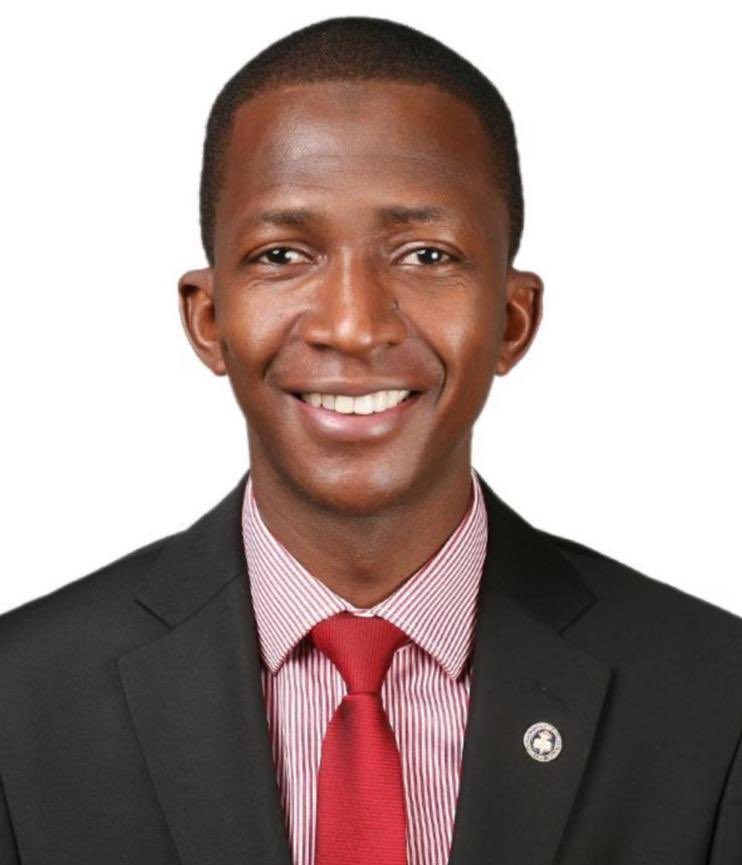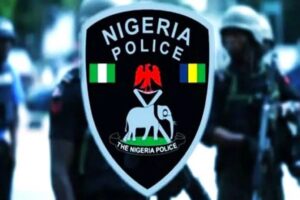
How oil marketers forged documents to claim multi-billion naira subsidy – Ex-EFCC boss
Former EFCC Chairman Abdulrasheed Bawa has revealed that several oil marketing firms engaged in systematic document forgery to unlawfully obtain petrol subsidy payments from the government.
He revealed that some companies went to extreme lengths, falsifying up to 24 different documents—ranging from marine insurance certificates to bills of lading and government approvals—to fraudulently claim multi-billion naira subsidies under the Petroleum Support Fund.
According to Bawa, this method of document forgery to inflate subsidy claims was one of the most widespread and deeply entrenched fraudulent practices in the petroleum sector, particularly from late 2010 onward.
Bawa, who led the anti-graft agency between February 2021 and June 2023, made the startling revelations in his new book titled “The Shadow of Loot & Losses: Uncovering Nigeria’s Petroleum Subsidy Fraud”, obtained by our correspondent on Thursday.
He said investigations by the EFCC uncovered how oil marketing companies routinely manipulated the volume of petroleum products they claimed to have imported, using fake documents to inflate their subsidy entitlements.
Bawa wrote, “The manipulation of import quantities by oil marketing companies to fraudulently increase subsidy payments represents one of the most prevalent forms of fraud observed in the sector, especially from late 2010 onwards. The calculation of subsidy claims follows a straightforward formula: the landing cost minus the ex-depot price multiplied by the quantity imported. Therefore, any volume change directly affects the calculated subsidy claim.
“Numerous oil marketing companies engaged in this fraudulent practice, leading to the EFCC’s uncovering illicit gains amounting to over N30 billion. The scale of this fraud illustrates the systemic vulnerabilities within the regulatory framework. It also highlights the challenges faced by enforcement agencies.
“To facilitate this type of fraud, hundreds of forged documents were utilised, including but not limited to surveyor reports, depot documentations, traders’ documentations, government endorsements, and banking documentations.”
He noted that the fraud was made possible due to systemic vulnerabilities in the regulatory framework and a wide-scale conspiracy involving depot owners, surveyors, and some government officials.
According to him, in many cases, officials from regulatory agencies knowingly or unknowingly endorsed the fraudulent documents used by marketers to obtain payments under the now-defunct Petroleum Support Fund.
“In many instances, government officials were found to have either knowingly or unknowingly participated in the fraud by stamping and signing the forged documents. Some officials reported that they had signed off on documents while on duty, despite the fact that they were aware that the documents had been compromised. There were those who signed off on fraudulent documents, not knowing that the documents were fabricated.
“Every subsidy fraud case investigated by the EFCC contained instances of forged documents. Some cases involved solely the forgery of the bill of lading, as detailed in Chapter Three under the discussion on alterations of bill of lading dates. There were instances of complex schemes involving the fabrication of over 20 different documents.
“The fraud perpetrated by oil marketing companies extends beyond the use of forged documents; it often involves a coordinated conspiracy among various stakeholders, including depot owners or managers, surveyors, and government officials. These collaborators falsely claim to have “witnessed” the discharge of products at depots, thereby facilitating fraudulent activities,” Bawa added.
Bawa detailed a specific case study involving a firm he referred to as ZZZ Limited. In the second quarter of 2011, the company reportedly obtained a government permit to import 10,000 metric tons of Premium Motor Spirit, but only imported half the volume.
A pertinent example of this kind of fraud can be seen in the case of ZZZ Limited (a pseudonym). In the second quarter of 2011, ZZZ Limited, a registered participant in the Petroleum Support Fund, engaged in a series of deceptive practices that enabled it to illegitimately acquire subsidy payments.
“PPPRA issued a permit to ZZZ Limited for the importation of 10,000 metric tons (MT) of PMS. A trader then issued a pro forma invoice to the company for the supply of the same quantity at Offshore Cotonou.
“ZZZ purchased a marine insurance certificate, and its bank agreed to finance the transaction by opening a Form M and a Letter of Credit in favour of the trader. The trader supplied 9,500 MT (equivalent to 12,000,000 litres) of PMS to ZZZ through transhipment at Offshore Cotonou. The shipment was subsequently delivered to the nominated vessel of ZZZ, which ultimately discharged the product at a depot in Port Harcourt.
“ZZZ Limited obtained and submitted all necessary documentation, adhering to the 38-checklist documents required by PPPRA (see Appendices 1-38 for samples of these documents). The subsidy was computed based on the submitted documentation, and the Debt Management Office issued a Sovereign Debt Note valued at N1,400,000,000 in favour of ZZZ Limited. ZZZ subsequently cashed the promissory note and utilised the funds.
“At first glance, this transaction appears legitimate: A registered company, ZZZ Limited, successfully imported PMS and received the corresponding payments. However, the reality is that the entire operation was built on a foundation of deception, involving fraudulent documentation and conspiratorial actions among various actors that were involved in the supply chain.
“Upon investigation, it was discovered that ZZZ Limited only imported 5,000,000 litres of PMS, significantly less than the claimed 12,000,000 litres. Consequently, the company was entitled to a subsidy payment of only about N700,000,000. The company was, however, fraudulently overpaid N700,000,000. This raised a series of critical questions regarding the mechanisms of the fraud, the failure of the oversight by regulatory agencies, and how these illicit activities were eventually uncovered by the EFCC,” the former EFCC boss stated.
He said the firm backed its fraudulent claims with forged documents, including the pro forma invoice, certificate of marine insurance, Form M, letter of credit, commercial (final) invoice, notification of nomination of vessel, mother vessel bill of lading, mother vessel certificate of origin, mother vessel cargo manifest, ullage reports at the port of origin (before and after loading).
Other forged documents included a certificate of quantity and quality at the loading port, ullage reports on arrival and after discharge to the daughter vessel, cargo transfer certificate, certificate of quantity and quality at the discharge port, witness page, PPPRA approval page, shore tank report, shore tank certificate, DPR vessel report, and the letter of affirmation of discharge from the depot.
In all, investigators uncovered 24 different forged documents used by ZZZ Limited to claim a subsidy payment of N1.4bn from the Debt Management Office.
“The fraud was orchestrated through the forgery of essential documents to create an illusion of legitimacy. Despite the involvement of multiple agencies, including the Nigerian Navy, Customs, NIMASA, DPR, PPPRA, and government-appointed auditors, the concealment tactics employed were sophisticated,” Bawa said.
He added that the EFCC recovered over N30bn from marketers involved in various subsidy-related frauds during his tenure, even as he lamented the entrenched resistance faced by enforcement agencies.
The revelations come amid renewed scrutiny of Nigeria’s controversial subsidy regime, which President Bola Tinubu declared ended in May 2023. Before the removal of petrol subsidies, the Nigeria Extractive Industries Transparency Initiative reported that the country spent over N13tn on subsidy payments between 2005 and 2021.
Bawa’s book provides an insider’s view of what many analysts have described as the biggest financial heist in Nigeria’s history, with billions lost to phantom fuel imports and falsified claims.
The publication stirs debate and prompts renewed calls for the prosecution of subsidy fraudsters, many of whom are yet to face justice more than a decade after the scam was exposed.
- Judge Halts Trump’s Executive Order Against International Student
- You would have lost 2024 US election without me — Musk blasts Trump
- Bill Gates doles out $7.5m to support AI scaling initiative in Nigeria
Share your story or advertise with us: Whatsapp: +2348033202396 Email: sentinelnewsng@gmail.com







